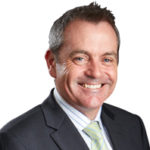
Retirement is often imagined as a chapter in our lives when we can finally kick back, enjoy the fruits of our labour and make the most of the time and resources we have at our disposal.
In reality, however, retirees often experience three chapters, or phases, while progressing through the retirement years:
- The early (active) chapter
- The middle (passive/sedentary) chapter
- The late (frail/support) chapters
These chapters help highlight the link between aging and our health status, and it’s important to consider these chapters when making financial plans for this time in our lives.
As we age in retirement, our health often progressively declines. This decline can affect many areas of our life. Of course, the age ranges for these three chapters will differ for each person, the age ranges and chapters overlap, and progress can vary for each of us.
- In the first or “active” chapter during the early 60s, many people continue to work either full- or part-time, remain in good health and enjoy living in their existing home. Financially, they have the means to renovate their home (or to buy a new one), travel and have enough income and/or savings to enjoy more leisure activities.
- In the middle chapter, generally after the age of 65, many retirees begin to spend more time closer to home, perhaps giving up paid employment in favour of volunteer activities. The financial focus shifts a bit, with more emphasis on saving and less on spending, and people may begin to consider downsizing or modifying their homes or seek assistance with some personal in-home care.
- In the third chapter, which is typically after the age of 75, healthcare begins to take on an increasingly important role and is likely to affect finances. Mobility may become further restricted, with travel and other leisure activities reduced. Depending on the need for healthcare and personal assistance, housing or in-home care may also change and may include a move to some type of residential care facility.
Considering the overlap in retirement chapters, it’s also important to understand the difference between life and health expectancy. Life expectancy refers to how long a person is likely to live, whereas health expectancy examines within that time frame the years likely spent in good health.
In the context of retirement, according to the Australian Institute of Health and Welfare, on average, at age 65 males could expect to live 8.7 years without disability and a further 10.4 years with some form of disability (including 3.7 years with severe or profound core activity limitation). Females could expect to live 9.5 years without disability and a further 12.5 years with some form of disability (including 5.8 years with severe or profound core activity limitation).
This concept of living with and without a disability is reflected in the three chapters of retirement. Importantly, as our health declines, there can be effects not only on our time, work and finances, but also our housing and care needs.
While retirement is certainly something to look forward to and be enjoyed, it’s important to understand the overall picture of the retirement life cycle so you can plan and act accordingly – especially when considering what you will need in retirement savings, aged care and estate planning.
Whether you are a pre-retiree or current retiree, we’re here to help. Contact our financial planning experts at Accru Harris Orchard today to learn more about planning and preparing for these three chapters of retirement.
Source: The Financial Knowledge Centre
Disclaimer: The information contained in this article is based on information believed to be accurate and reliable at the time of publication. To the extent permissible by law, neither we nor any of our related entities, employees, or directors gives any representation or warranty as to the reliability, accuracy or completeness of the information; or accepts any responsibility for any person acting, or refraining from acting, on the basis of information contained in this blog. This information is of a general nature only. It is not intended as personal advice and does not take into account the particular investment objectives, financial situation and needs of a particular investor. Before making an investment decision you should speak with your financial planner to assess whether the advice is appropriate to your particular investment objectives, financial situation and needs.
